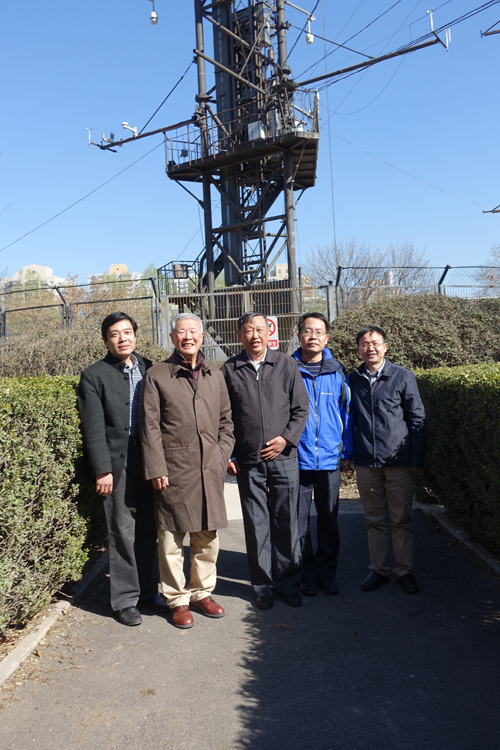The international seminar on "time-series analysis, turbulence and non-classical statistical model" was held on March 23 was organized by specialized committee of climate and environment mathematics in China Society for Industrial and Applied Mathematics, LAPC and ICCES and held in Institute of Atmospheric Physics, CAS. The participants included Academician Norden E. Huang at National Central University, Taiwan, Prof. Dai De-jun at the First Institute of Oceanography, SOA, Academician Zeng Qing-cun, Prof. Hong Zhong-xiang, Prof. Wang Zi-fa, Prof. Lin Zhao-hui, Prof. Zhao Yi-jun, Prof. Hu Fei, Prof. Li Ai-guo, Prof. Zeng Xiao-dong, Prof. Cheng Xue-ling, and other researchers and graduate students in the boundary layer and the Earth System Model teams. On the morning, the introduction of the turbulent boundary layer observation and the related equipment at IAP and the applicability for ultrasonic anemometer thermometer to use under water was presented. On the afternoon, Academician Huang, Academician Zeng, Prof. Hu and Prof. Zeng gave the talks on turbulence spectrum and related issues, classical and non-classical turbulence, similarity and scaling law cascade of turbulent temperature fluctuation, bifurcation and non-classical statistical pattern of vegetation ecosystems, respectively. The attendee thoroughly discussed the turbulence problem, the advanced data analysis method for nonlinear data and the observing programs, and then formed the intention to further cooperation. This is a highly efficient, high-level expert seminar.
Academician Norden E. Huang is the TSMC Chair Professor and the Director of the Research Center for Adaptive Data at the National Central University. He was a senior Fellow and the Chief Scientist for Oceanography at NASA Goddard Space Flight Center till September 2006, before joining NCU. His recent research has concentrated in the development of a new adaptive data analysis method, the Hilbert Huang Transform (HHT), designed specifically to analyze nonstationary and nonlinear time series. For the invention of HHT, he was awarded the 1998 NASA Special Space Act Award with the citation, "[Dr. Huang’s new method] is one of the most important discoveries in the field of applied mathematics in NASA history." Based on his contribution in the field of nonstationary and nonlinear data analysis, he was elected as a member of the National Academy of Engineering (US), 2000; an Academician to the Academia Sinica (Taiwan), 2004; a Foreign Member of the Chinese Academy of Engineering (PRC), 2007; and a Fellow, SIAM, 2009.

